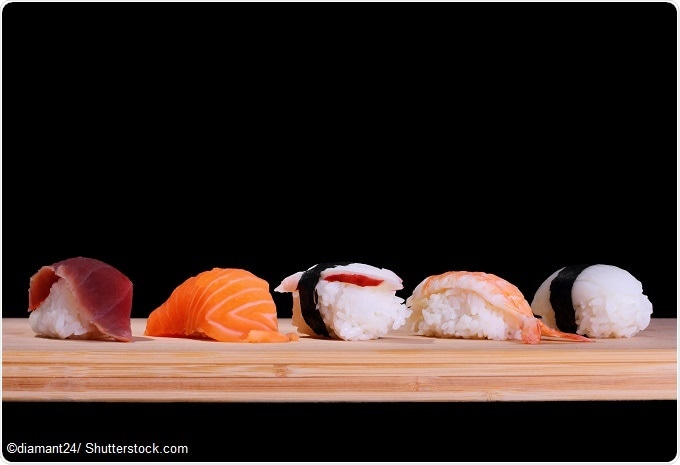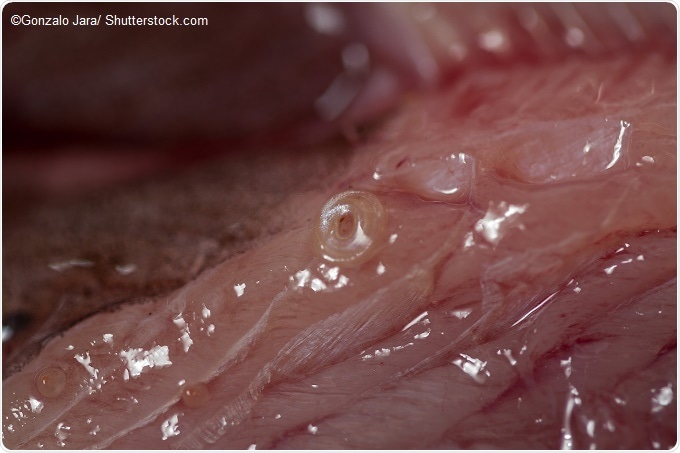May 12 2017
The case reports published in the British Medical Journal warns increase of hidden risks in western countries when consuming raw or undercooked fish/seafood due to the growing popularity of dishes such as sushi.

The warning from doctors came after they provided treatment to a 32-year old healthy man who had severe epigastric pain (pain in the upper abdomen), vomiting, and fever for a week. Physical examination found that the area below the ribs was tender, and the blood test results showed mild inflammation. When the patient revealed the recent intake of sushi, the physicians suspected that he might have anisakiasis.
Anisakiasis is a zoonotic disease caused when people consume raw or undercooked fish or seafood that is contaminated by the nematodes parasites of the genus Anisakis. An endoscopy procedure involving the insertion of a long tube with a camera at one end down the gullet and into the stomach has found that the larva of a filiform parasite was firmly attached to an area of swollen and inflamed gut lining. The symptoms the man experienced was resolved immediately after the larva was removed with a special kind of net. On laboratory analysis, it was proved that the larva belonged to the Anisakis species.

Anisakis parasite worm.
The authors said that most of the cases reported to date were from Japan, where a raw fish diet is very common. They further added that the disease is growing in western countries and advised healthcare professionals to think about the condition in patients with pain, nausea, vomiting, and other complications such as bowel obstruction and bleeding, who have recently consumed raw or undercooked fish.
Sources:
- https://www.eurekalert.org/pub_releases/2017-05/b-bop050917.php
- http://casereports.bmj.com/content/2017/bcr-2016-218857.full